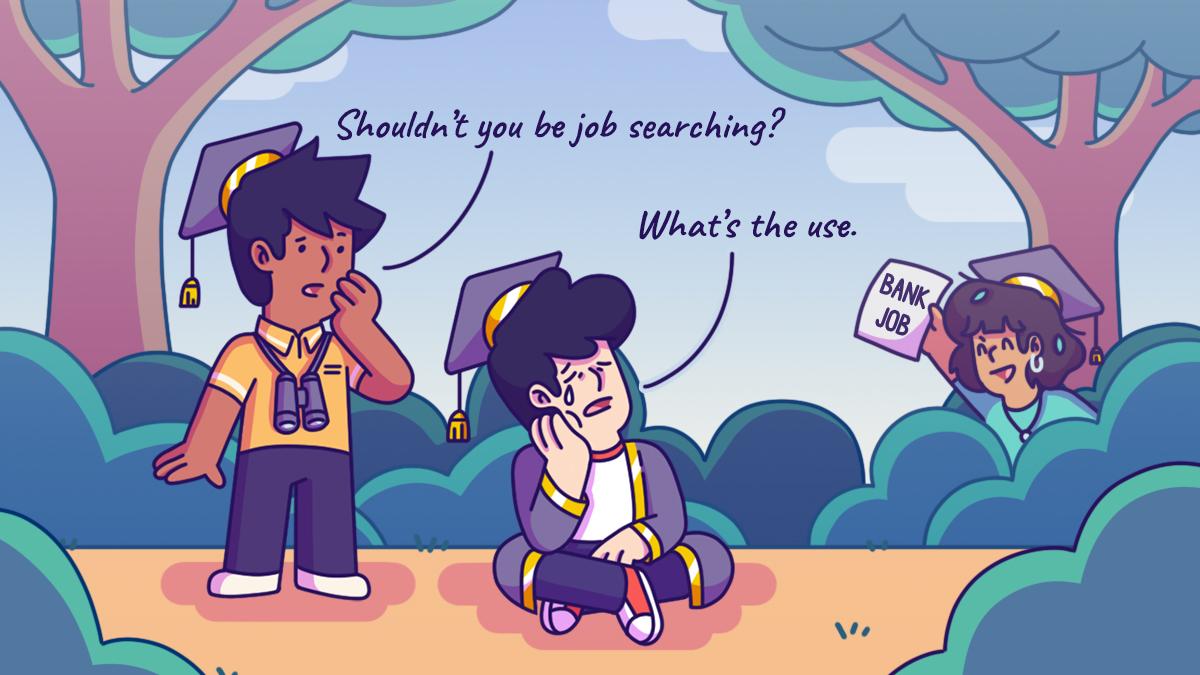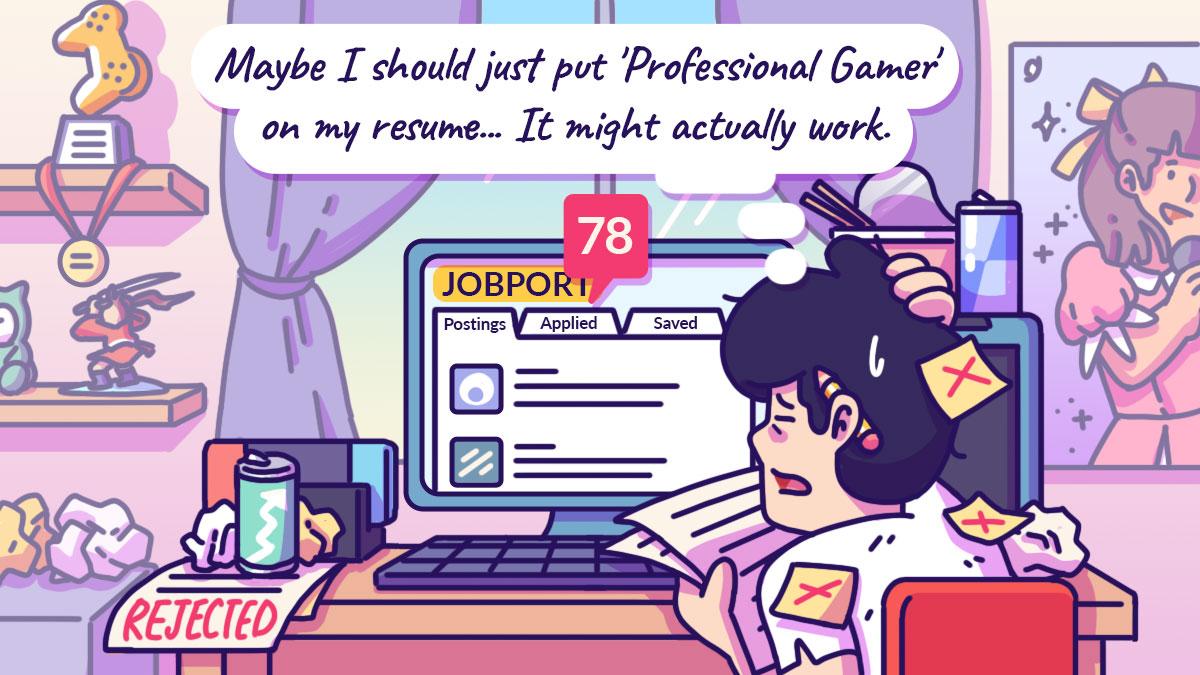As the job market evolves rapidly, fresh graduates face increasing challenges in finding employment.
It's not just about the lack of experience; the competition intensifies as they compete with more experienced professionals. The transition from college to the professional world often becomes a daunting process, requiring quick adaptation and skills that align with industry needs.
Additionally, economic uncertainty complicates matters further, leaving many fresh graduates feeling overwhelmed by the unpredictability of the job market.
While some graduates remain determined and persistent in their job search, others start to feel disheartened by the competitive environment and begin to question their career prospects. This creates a dynamic where some are actively pursuing opportunities, while others struggle with feelings of despair due to the various obstacles they face. Struggling to find footing in the job market
One of the biggest challenges for fresh graduates is the lack of experience. In many cases, employers prefer candidates who already have work experience, making it difficult for fresh graduates to stand out among other applicants. This often raises the question: how can we gain work experience without being allowed to start?
Moreover, the competition for entry-level positions is extremely fierce.
Numerous candidates are vying for a limited number of openings, reducing the chances of securing a job. This intense competition not only involves fresh graduates but also experienced workers seeking new opportunities in different sectors.
Another challenge is the gap between salary expectations and the reality of entry-level positions. Many fresh graduates have high hopes for their earnings after years of education, but the salaries offered often fall short of these expectations, leading to frustration.
The shrinking or shifting of job opportunities in certain industries further complicates the situation. The rise of digital transformation, automation, and other global changes is reshaping the labour market's needs. Economic uncertainty and changing regulations can also influence the number and types of jobs available.
In such conditions, fresh graduates must adapt quickly, expand their skill sets, or even consider careers in fields they hadn't previously imagined. How can fresh graduates increase their opportunities?
Despite these challenges, there are several strategies that fresh graduates can employ to enhance their opportunities:
- Explore opportunities abroad
Considering job opportunities abroad or remote work can open more possibilities. In today's digital era, many companies are more open to hiring employees from various locations and even overseas, allowing fresh graduates to apply for jobs beyond their local vicinity.
The job market is constantly changing, requiring jobseekers to continually adapt by learning new skills. These skills can be acquired through online courses, boot camps, or training programs in high-demand areas like digital marketing, coding, or project management.
These skills can make fresh graduates more competitive and open doors to emerging industries.
- Explore roles outside your major/degree
Fresh graduates should be open to exploring roles that may not directly align with their degree. For instance, a Communications graduate might find opportunities in customer service or content creation, which can provide valuable experience and transferable skills for future roles.
An English graduate can also look for opportunities in marketing and agency work.
Freelancing can be an effective way to gain experience while searching for a more stable position. Although it may not be the most ideal choice due to a lack of stable income, it can help you build your portfolio and skills that may attract a future employer.
Many platforms offer various freelance projects, helping fresh graduates build portfolios, acquire new skills, and earn income while they continue their job search. For example, platform like Upwork, Fiverr and Toptal connect freelancers with global companies seeking specific skill sets. Companies like Airbnb and Shopify often employ freelance talent through these platforms. Watch out for social pressures and avoid unnecessary stressors
Societal expectations of someone who has just completed their education are often high.
There's pressure for fresh graduates to quickly land a job and establish a stable life, obviously as parents have usually supported their child and are waiting for the day they “spread their wings” and find a job.
This social pressure makes job hunting even more challenging, especially when those around you hold rigid views on what constitutes a "real job." Working in a company is often considered more prestigious than other career paths, and this adds to the burden for those who choose a different path or are struggling to find a proper job.
Seeing friends or classmates already employed can trigger feelings of inadequacy or self-doubt. This social pressure, combined with job rejections, can lead to pessimism and negatively impact mental health!It's important to remember that everyone's career journey is unique.
Staying focused on personal growth and avoiding comparisons with others is key. Managing expectations and maintaining a positive outlook are also crucial.
In addition, creating a support system with friends, family, a partner, or a mentor who can offer encouragement during challenging times can provide the necessary motivation and emotional strength needed to persevere through difficult moments.
Job hunting may take time, but with perseverance and a readiness to adapt, the chances are you might end up finding a job that aligns with your goals and interests. Keep on trying!











